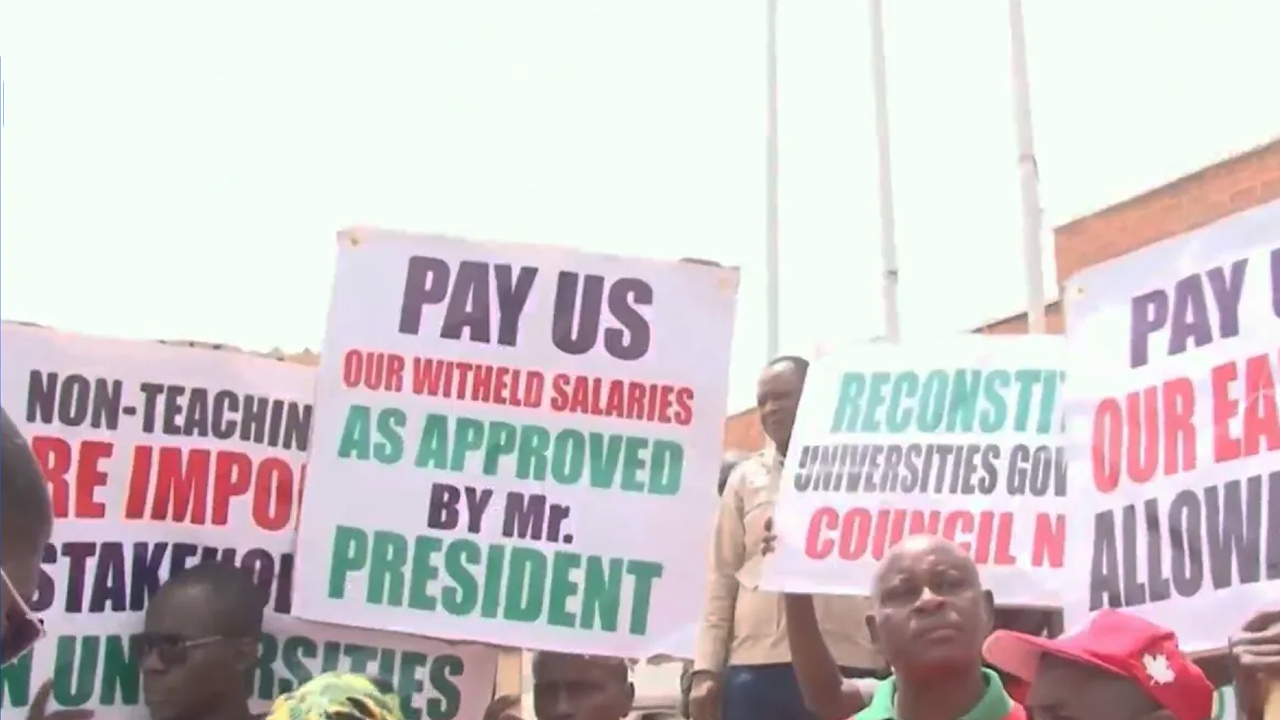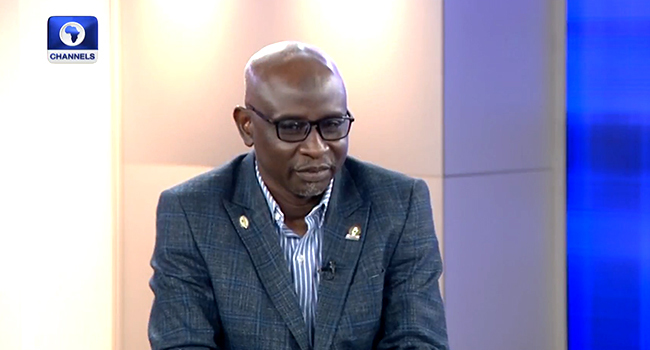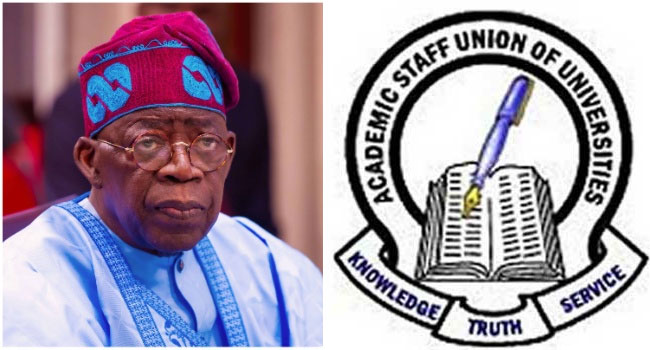
The Academic Staff Union of Universities (ASUU) has slammed the Federal Government over the payment of half salaries to lecturers in October.
In a statement on Tuesday by ASUU President, Emmanuel Osodeke, the union condemned the ‘pro-rata’ payment to its members and accused the government of an attempt to reduce Nigerian scholars to casual workers.
ASUU had on October 14, 2022, called off its eight-month strike after the National Industrial Court ordered the lecturers to resume.
“The action of the Union was a display of manifest trust in the judiciary and other institutions and organs of government to always put national interest above all other considerations. This we believe, as a union of thinkers, intellectuals, and patriots, will not only aid the process of amicable resolution of the crisis, but will also set the tone for smooth industrial relations between Government and Nigerian workers at large,” Osodeke said in the statement.
He, however, said the response of the government, especially its ‘pro-rata’ payment of October salaries of academics, portrayed them as daily paid workers.
“This is not only an aberration but a contravention of all-known rules of engagement in any contract of employment for academics the world over,” the union leader exclaimed.
According to him, ASUU National Executive Committee (NEC) held on Monday deliberated on the development and noted with dismay that “paying academics on pro-rata basis, like casual workers, is unprecedented in the history of university-oriented labour relations and therefore condemned this attempt to reduce Nigerian scholars to casual workers in its entirety”.
FG Defends Half Salary Payment
The Federal Government over the weekend had defended the pro-rata payment to ASUU members in October, saying they cannot be paid for work not done.
The Minister of Labour and Employment, Chris Ngige, through the ministry’s spokesman, Olajide Oshundun, also dismissed media reports that the government was biased in paying the university teachers.
READ ALSO: Pay ASUU Members Full Salaries, Falana Tells FG
“They were paid in pro-rata to the number of days that they worked in October, counting from the day that they suspended their industrial action,” the statement partly read.
“Pro-rata was done because you cannot pay them for work not done. Everybody’s hands are tied,” he said.
‘No Work No Pay Is Legal’
Also, the speaker of the House of Representatives, Femi Gbajabiamila on Monday, said the green chamber is making arrangements for a N170 billion fund for ASUU in the 2023 budget.
“We are currently working on the 2023 Appropriations Bill, which includes the sum of one hundred and seventy billion naira (N170,000,000,000.00) to provide a level of increment in the welfare package of university lecturers,” the statement read.
“The Bill also includes an additional three hundred billion naira (N300,000,000,000.00) in revitalization funds to improve the infrastructure and operations of federal universities.”
The ‘no work no pay’ policy embarked on by the Federal Government during the period of strike, Gbajabiamila said, is premised on the law.
He said the decision is based on the government’s legitimate interest in preventing moral hazard and discouraging disruptive industrial actions.
“Nonetheless, interventions have been made to explore the possibility of partial payments to the lecturers. We look forward to a favourable consideration by His Excellency, President Muhammadu Buhari, GCFR who has manifested his desire to what is prudent and necessary to resolve all outstanding issues.
“Implementing meaningful change takes time, especially when appropriations and modifications to systems such as IPPIS are required.
“Therefore, I urge all parties to be patient and grant each other the presumption of goodwill to the extent necessary to achieve our shared objectives. This is not a time for political brinkmanship,” he said.




